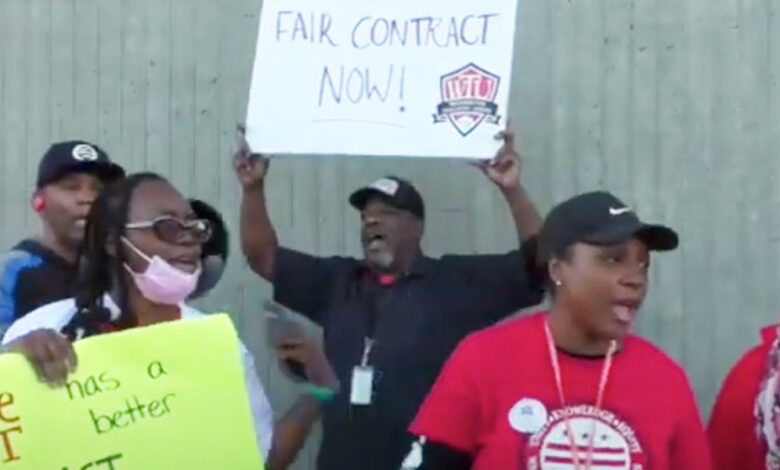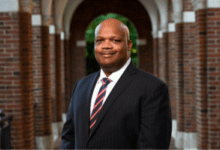
By Sam P.K. Collins | Washington Informer
Contract negotiations between the Washington Teachers’ Union (WTU) and D.C. Mayor Muriel Bowser (D) are at a standstill, even as public school administrators and other government employees have finalized their contracts with the city.
At this point, even the circumstances of the delay has become a point of contention.
WTU President Jacqueline Pogue-Lyons said she remains adamant about securing a cost-of-living pay raise while preserving benefits and substantial planning time for teachers. Meanwhile, Bowser continues to assert that she and DC Public Schools (DCPS) Chancellor Lewis D. Ferebee crafted a solid deal for the District’s more than 4,000 public school teachers.
“We have settled 10 [D.C. government employee] contracts,” said Bowser on Monday while standing next to Ferebee at Oyster-Adams Bilingual School in Northwest. “What teachers and parents should know is that we’re grateful for our teachers and I stand firm to make the pay increase,” Bowser continued. “We need one person [WTU President Pogue-Lyons] to say ‘yes’ for the teachers.”
Over the last few weeks, teachers have gathered at Anacostia and Tenleytown metro stations to demand contracts that reflect their desires for higher pay, benefits and other protections. Part of their mission, as Pogue-Lyons describes, centers on raising awareness about a contract battle that started shortly after she took the helm of WTU.
As segments of the public school teacher population mull more extreme measures to secure a contract, the WTU released the findings of a survey suggesting that four out of five teachers are dissatisfied with their jobs. Causes include high workload, teacher turnover and no raises or cost-of-living salary increase in three years.
This data comes amid teacher turnover estimated to stand between 20 percent and 35 percent, depending on the District public school.
Last week, nearly 100 teachers, principals, parents, advocates and community members signed up to testify before the D.C. Council about teacher and principal turnover. During the hearing, teachers’ comments centered on working conditions and what teachers did at the height of the pandemic to ensure continuity in student learning.
Pogue-Lyons said teachers’ commitment to the profession continued during the return to in-person learning and throughout much of last year, when nearly all teachers received vaccinations, and a significant number contracted COVID during the pre-winter break surge.
That timeline of events, she noted, lays to rest any notion that teachers are asking for too much.
“The mayor has been putting out this narrative about greedy teachers,” Pogue-Lyons said.
“We want what’s fair. We shouldn’t be asked to take far less than what administrators have gotten,” she added. “We’ve had inflation and teachers are between 25 and 39 years old and they can’t afford to live in the District.”
The collective bargaining agreement reached with the Council of School Officers, which represents DCPS principals, assistant principals, administrators and service providers, includes a 2.5 percent pay raise for this fiscal year and the next one. Over the next four years, all members can expect a 12 percent salary increase along with an extra pay supplement.
Among D.C.-area private sector employees, pay has increased by 12.4 percent over the last three years. This happens at a time when some teachers are eyeing career opportunities outside of the teaching profession.
For now, that doesn’t seem to be the case for Jewel Cauley, a DCPS teacher in her second year.
Cauley, a DCPS alumna and second grade teacher at Stanton Elementary School in Southeast, said she often thinks about what’s at stake while juggling her obligations as an instructor, aftercare facilitator and cheerleading coach.
Though the work gets hard at times, Cauley said she can rely on the guidance of administrators and veteran teachers.
“I truly believe that teaching is my calling and that I was made to positively impact the youth, not only academically, but socially and emotionally,” Cauley said.
“Watching them progress and grow throughout the year is motivation to show up every day. I would love to continue this impact as long as I could,” she added.
“As long as I am doing what I love; which is teaching, I believe that everything will work out in the end, as it has been.”










